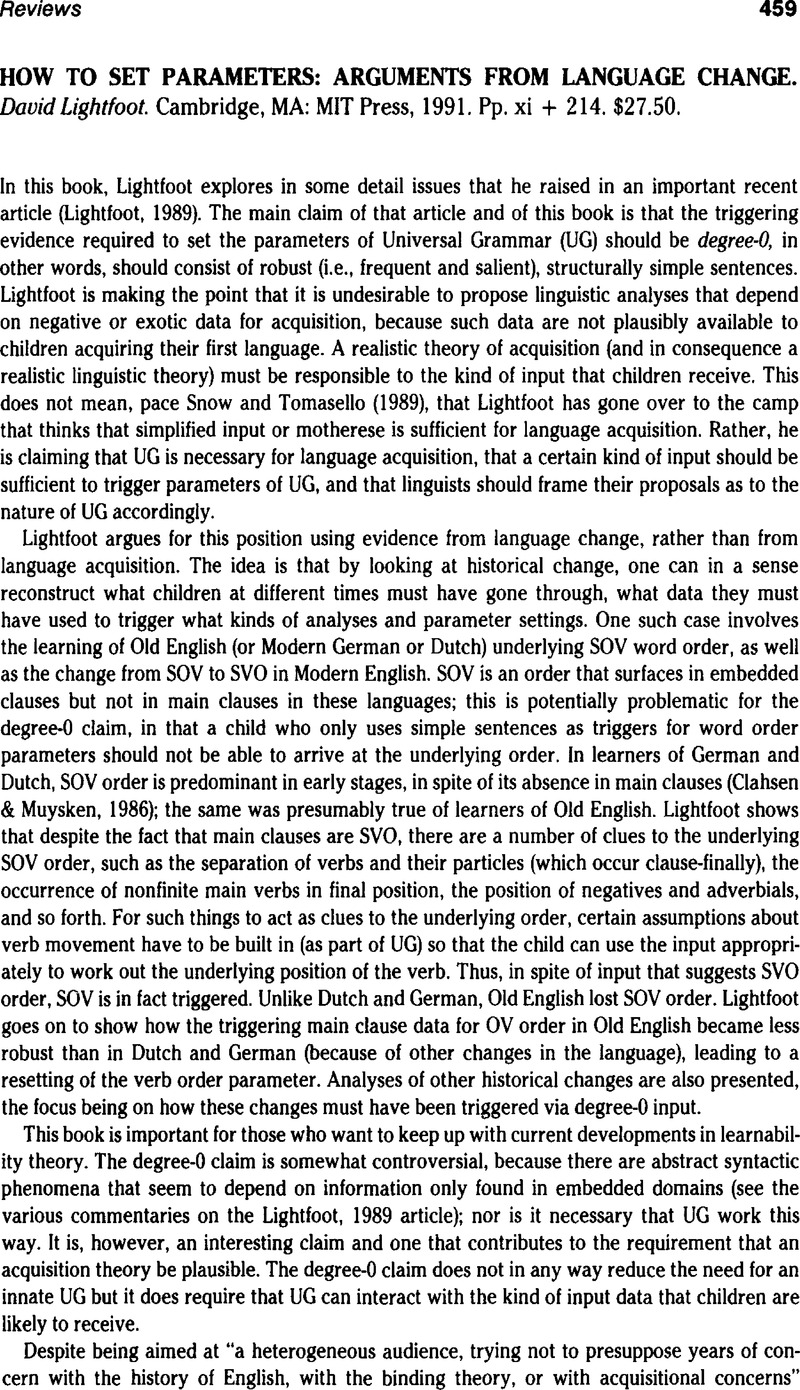No CrossRef data available.
Article contents
HOW TO SET PARAMETERS: ARGUMENTS FROM LANGUAGE CHANGE. David Lightfoot. Cambridge, MA: MIT Press, 1991. Pp. xi + 214. $27.50.
Review products
HOW TO SET PARAMETERS: ARGUMENTS FROM LANGUAGE CHANGE. David Lightfoot. Cambridge, MA: MIT Press, 1991. Pp. xi + 214. $27.50.
Published online by Cambridge University Press: 07 November 2008
Abstract
An abstract is not available for this content so a preview has been provided. Please use the Get access link above for information on how to access this content.

- Type
- Reviews
- Information
- Copyright
- Copyright © Cambridge University Press 1992
References
Clahsen, H., & Muysken, P. (1986). The availability of Universal Grammar to adult and child learners: A study of the acquisition of German word order. Second Language Research, 2, 93–119.Google Scholar
Lightfoot, D. (1982). The language lottery: Toward a biology of grammars. Cambridge, MA: MIT Press.Google Scholar
Lightfoot, D. (1989). The child's trigger experience: Degree-0 learnability. Behavioral and Brain Sciences, 12, 321–334.Google Scholar
Snow, C., & Tomasello, M. (1989). Data on language input: Incomprehensible omission indeed! Behavioral and Brain Sciences, 12, 357–358.Google Scholar
White, L. (1989). Universal grammar and second language acquisition. Amsterdam: John Benjamins.Google Scholar


